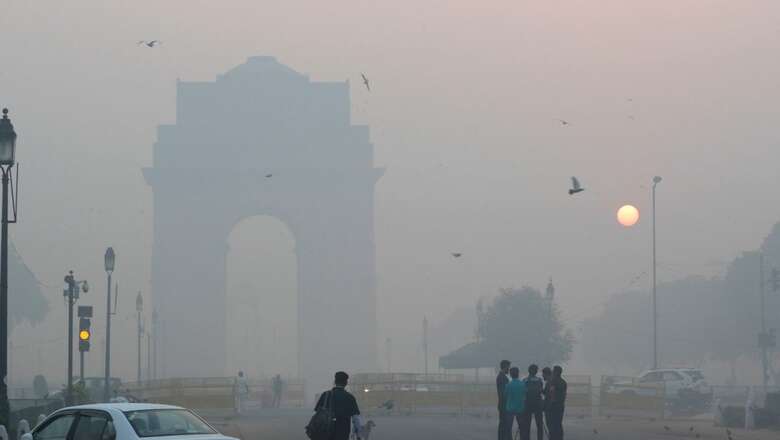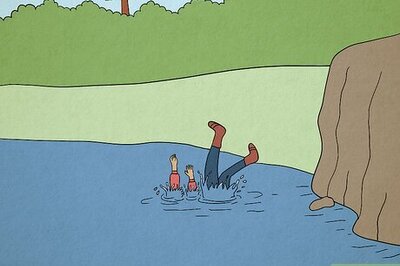
views
With the onset of winter, the air quality index (AQI) in northern India, particularly in cities like Delhi and Kanpur, is set to deteriorate. It has become a norm for the national capital to register back-to-back days when the AQI plummets to ‘Hazardous’. In recent years, many studies have confirmed that persistent exposure to air pollution is extremely harmful for children. UNICEF considers air pollution as one of the “greatest threats to children’s health”. Air pollution has been directly linked with respiratory infections and other related diseases that are responsible for almost 1 in 10 under-five deaths.
How air pollution affects children
It goes without saying that young kids are more sensitive to the elements of the world than fully grown adults, this goes for the impact of air pollution on kids. To understand air pollution, one must understand minute air particles known as PM 2.5. For scale, the PM 2.5 particles are smaller than one-thirteenth of the width of a human hair. These invisible particles can be absorbed into our bloodstream after they pass through the lungs. The PM 2.5 particles are associated with lung cancer, strokes, chronic bronchitis, asthma, and a host of other diseases.
Since children breathe faster in comparison to adults, they take in more air relative to their body weight. Besides, the heavier air pollution particles are placed closer to the ground, which makes toddlers and shorter kids more susceptible to inhaling copious amounts of PM 2.5 with each breath.
How to protect kids from air pollution when you are outdoors
The step towards protecting your kids from air pollution is to monitor the AQI of the day. As per AirNow, an air quality database, if the AQI is above 101 then it is not suitable for “sensitive groups”. If the AQI goes above the mark of 151 then one should avoid taking their kids outdoors and cancel outdoor plans be it sports tournaments or picnics.
One should also make sure that their kids stay away from pollution-heavy zones such as areas near busy roads or construction zones. Travel during off hours when traffic is low.
How to protect kids from air pollution when you are indoors
One should never smoke near kids. Make sure that your kitchen area is well-ventilated and supported with exhaust fans and chimneys so that the kids do not inhale fuel generated by cooking. If possible one should switch to cleaner cooking methods such as electricity-backed cookers. One can also use air purifiers with high-efficiency particulate air filters to improve indoor air.
Advocate for environment-friendly policies
To make sure that the problem of air pollution is tackled at a statewide level, one should advocate for environment-friendly policies, which are often ignored by regular citizens.


















Comments
0 comment